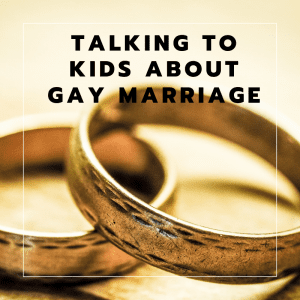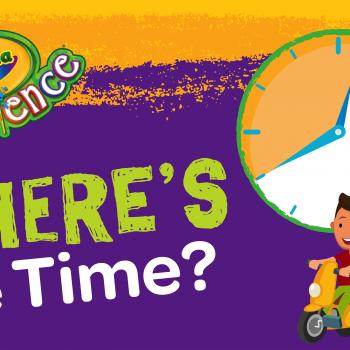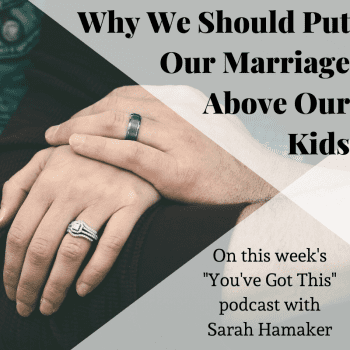For some reason, hot cultural topics can be difficult for parents to navigate. This mom wants some guidance on how to talk to her children from a Christian perspective about gay marriage.

Q: I’m looking for some guidance on how to talk to my young children (ages 6 and 9) about gay marriage. My kids just informed me that their art teacher is a girl who just married a girl. We are Christians and believe that marriage is only between a man and woman. It saddens me that we have to have these conversations at such a young age, but that is the reality of today. Of course, I want them to love all people regardless of their choices, good or bad. I just don’t want them to think it’s normal or acceptable to God. Are you able to provide some insight on this subject?
Back story: This isn’t the first time it has come up. In preschool, another girl told my daughter that girls could marry each other. They pretended to get married and kissed. At that time, we told her (and brother) that God wants all the kids to have both a mommy and daddy and they want to marry the opposite sex. That settled it for a while, but now they have teachers as examples. It breaks my heart!
I’m glad you asked because this is a great question. As believers, we do swim upstream in a river that’s polluted with sin of all kind, and it can be difficult to know how to talk to our children about cultural issues such as gay marriage, transgender, sexuality, and a host of other hot topic issues.
Let me encourage you not to be sad but to be glad that you have the opportunity to discuss such things with your children at an early age. We can’t start too early with instilling in our children our family values and, as Christians, helping them to see those values are rooted in the Bible.
As believers, we do swim upstream in a river that’s polluted with sin of all kind, and it can be difficult to know how to talk to our children about cultural issues such as gay marriage, transgender, sexuality, and a host of other hot topic issues.
With my own four children, we’ve had these kinds of discussions over the years, and found them fruitful both in guiding our children and in giving them food for thought. We don’t want our kids to blindly follow our values but to embrace them as their own, and having honest discussions can go a long way toward helping them achieve that.
So in answer to your specific question about how to broach gay marriage with your children, here’s how we approached that topic specifically. But you can also use the same framework for other sticky issues.
- Have lots of mini-conversations. Kids of all ages need time to digest, think through, and process information, so plan on having as series of talks.
- Don’t lecture. As much as you want to say, “This is what we believe and that’s the end of it,” resist! Instead, focus on creating opportunities for dialogue.
- Ask open-ended questions. For the gay marriage example, we asked our kids “Why do you think God created marriage between a man and a woman?” and “What’s the purpose of marriage?”
- Really listen to their answers. Again, put off your lecture hat and be nonjudgmental as your kids work through their own thoughts about this issue. The more you can give them a safe space to voice their concerns and differences of opinions, the more they will be willing to bring the tough questions to you first–instead of their peers.
- Remember your goal. It’s not to have kids who simply parrot what you tell them to say, but it’s to have kids who have thought through the difficult issues and come to their own conclusions. Yes, we want those conclusions to line up with what we know is true, but we also want our kids to get to the truth on their own. It might look stickier and messier than our way, but it’s theirs, and that’s what will help them stick to those decisions when peer pressure comes.
Kids become teens all too quickly, and you’re laying the foundation for critical thinking when it comes to these cultural issues. Your kids are also learning the very important lesson that not everyone believes like they do, and that it’s okay to like those who believe differently (as I’m sure they will probably like their art teacher!).
Finally, something that helped my kids (who all go to public school, so we get lots of opportunities to discuss cultural issues and different lifestyles): I reminded them that not everyone believes like we do, and for those who don’t, we shouldn’t expect them to live like they believe in God. So it’s natural that they will have lifestyles that are foreign to ours, but the more compassion and genuine interest in others as those made in the image of God, the more opportunities we’ll have to share the Gospel with them through our lives.
















